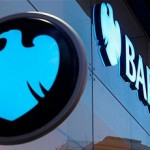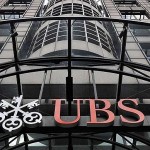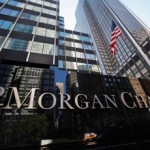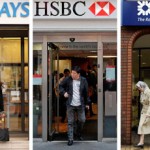Citigroup, Barclays Close to Settling Forex Lawsuit With Private Investors
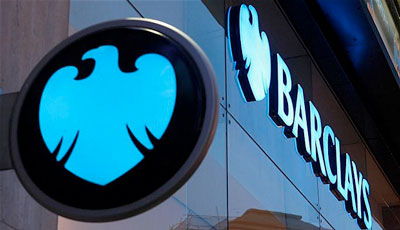
Citigroup Inc. and Barclays PLC are expected to pay as much as $800 million combined to settle a lawsuit with investors who say the banks manipulated foreign-exchange rates, according to people close to the situation.
The expected settlements would come apart from continuing negotiations the two banks and a number of their peers are conducting with the Justice Department and other regulators over similar allegations. If finalized, the payments would add to the fallout from the multiyear, world-wide foreign-exchange probe that has already cost banks billions of dollars in payouts and fines.
The settlements related to the lawsuit could be completed as soon as this week. The payments from New York-based Citigroup and London-based Barclays are likely to be more than double those made by J.P. Morgan Chase & Co. and UBS AG, which have already settled their parts of the same suit. How much Citigroup or Barclays would pay individually couldn’t be determined.
The plaintiffs in the lawsuit include pension funds and other investment firms.
Representatives for Citigroup and Barclays declined to comment.
The government negotiations could potentially end up costing the banks more: The Justice Department is demanding about $1 billion per bank, according to people familiar with the situation.
The Justice Department has pressed some of the banks, including Citigroup and Barclays, to plead guilty to criminal antitrust charges, The Wall Street Journal previously reported.
Settling with the private investors while negotiating with the Justice Department and regulators is potentially a strategy by the banks to minimize the damage from both, said Jimmy Gurulé, a former enforcement official at the Treasury who is now a law professor at the University of Notre Dame.
On one hand, by settling, the banks can show the government that they are taking the allegations seriously, he said. At the same time, it prevents the private investors from using evidence the Justice Department may later present.
The private investors “could just take that [Justice Department] document and introduce that and say, ‘We rest,’” said Mr. Gurulé.
Citigroup already agreed to pay a combined $1 billion in November to settle foreign-exchange charges with the U.K.’s Financial Conduct Authority, as well as the Office of the Comptroller of the Currency and the Commodity Futures Trading Commission in the U.S. Other global banks, including J.P. Morgan and UBS, also negotiated settlements with those agencies.
In those cases, the banks didn’t dispute the regulators’ findings. Barclays, however,pulled out of those negotiations and didn’t settle.
Barclays and Citigroup have suspended several traders in connection to the investigation into currencies markets, which was kicked off in London in April 2013 by the U.K. conduct authority.
Citigroup controls more of the foreign-exchange market than any other bank, handling about 15% of daily currency trades. Barclays is the third-largest dealer, with about 10% market share, behind No. 2 Deutsche Bank AG.
The private lawsuit, filed in late 2013 by pension funds and other investors in the U.S. and the Caribbean, accuses traders at a dozen banks of improperly sharing confidential information about their clients’ orders via electronic chat rooms, then using that information to make money at the expense of their clients.
The investors, which include the Oklahoma firefighters pension fund and the city of Philadelphia pension fund, say they were harmed by engaging in foreign-exchange transactions with the banks.
The traders, the lawsuit said, are in a small and close-knit group who “belong to the same social clubs, golf together, dine together, and sit on many of the same charity boards” in the neighborhoods of the Essex countryside outside of London’s financial district.
J.P. Morgan in late January agreed to pay $99.5 million, and UBS said Friday that it had agreed to pay $135 million. Neither bank admitted wrongdoing. Both agreed to cooperate against the other banks.
J.P. Morgan was the first of the banks to settle its portion of the lawsuit.
In a lawsuit where multiple companies are sued, it isn’t unusual for one to come forward first and try to broker the best deal, though J.P. Morgan’s decision caused some grumbling among the other banks, according to people familiar with the situation.
The lawsuit is still outstanding against Bank of America Corp., BNP Paribas, Credit Suisse, Deutsche Bank, Goldman Sachs Group Inc., HSBC Holdings PLC, Morgan Stanley and Royal Bank of Scotland Group PLC.
Officials for those banks declined to comment or didn’t return messages seeking comment.
The case is currently pending in Manhattan.
Connecticut-based law firm Scott+Scott LLP, which helped secure the settlements with J.P. Morgan and UBS, is planning to open a London office this year to advise European investors on similar issues, according to a person familiar with the matter.
Hausfeld LLP, the other co-lead firm in the case, already has offices in Brussels and London.
The two firms are expected to bring similar cases in Europe, according to people familiar with the matter. The firms didn’t respond to requests for comment.
Source: WSJ – Citigroup, Barclays Close to Settling Forex Lawsuit With Private Investors









